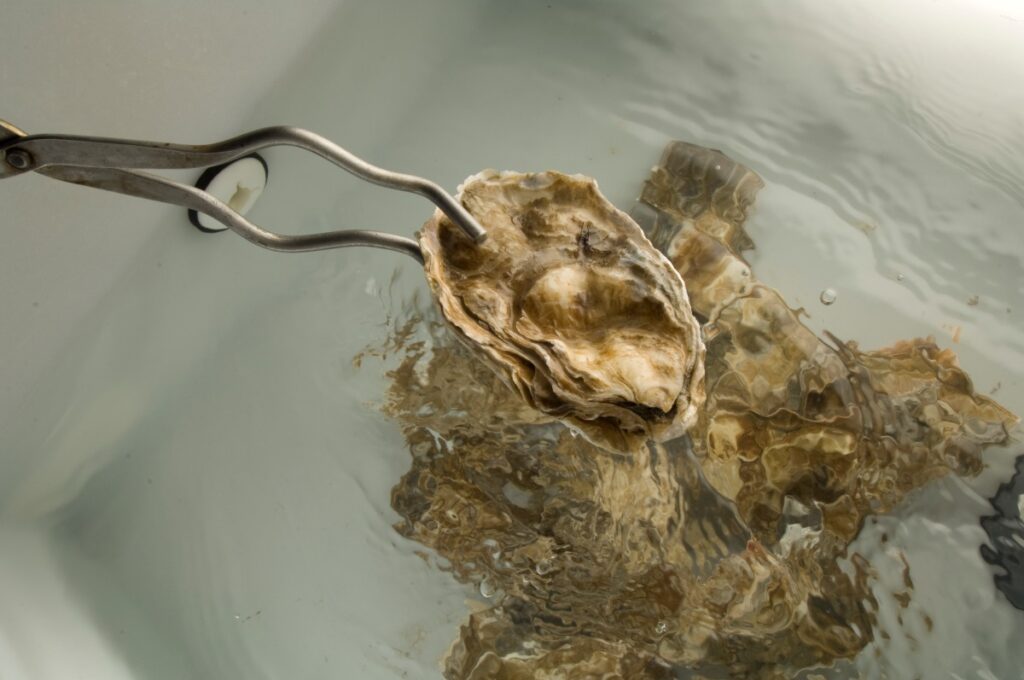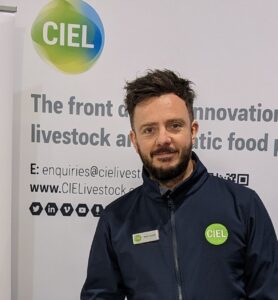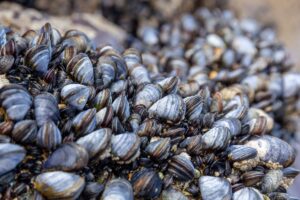Emerging innovations for the shellfish industry

Innovation could help the shellfish industry adapt to restrictions posed since Brexit, writes Martin Sutcliffe
Water quality is an important issue for the aquaculture sector and can be incredibly varied across UK coastlines due to contamination from sewerage. One sector that has been directly impacted by water quality is the shellfish industry, which has faced strict restrictions on what can be traded with the European Union (EU) due to reduced water quality.
The EU trade block has long been a key customer for the UK seafood shellfish market but since Brexit, the stipulations on bivalve shellfish exports to Europe have significantly increased, not helped by the poor water quality present in UK near-shore waters.
The majority of the shellfish farmed in the UK are filter feeding, meaning contaminants and harmful algae can be directly taken in by the shellfish.
UK water is classified into three groups by the Food Standards Agency, based on the level of E coli bacteria present in the shellfish. A-class water is the best quality, while C-class is the lowest.

Martin Sutcliffe
Shellfish produced and harvested from A-class waters can be eaten without the need for any purification processes and can be traded with the EU.
However, shellfish produced in B-class waters, which are not of such high quality, need to be purified after harvest.
Prior to Brexit, these shellfish could still be traded with Europe, either before or after purification (also known as depuration). However, new rules mean any shellfish from B-class waters or below cannot be traded without first being purified. This means some shellfish farmers have lost out on significant business or, in extreme cases, are unable to trade.
Different types of shellfish are affected differently by the purification process. Mussels, which make up a large percentage of the product exported to the EU, once purified have a significantly reduced shelf life, which makes it extremely difficult to trade treated mussels as a commodity, as was done before Brexit.
It is therefore clear that, if a farmer is targeting the export market, A-class waters are more important than ever.
For shellfish farmers working in B-class waters or below, currently the only way to comply with the regulations is to either re-lay the shellfish in A-class water for 48 hours or place them in tanks on shore, allowing the shellfish to expel any contaminants.
This, however, can be inefficient and could become an incredibly costly and complicated process.
Innovations in water testing
To avoid confusion on this issue and to ensure shellfish producers can bring as much product to market as possible, having robust testing procedures in place and technology that allows farmers to better understand water quality is essential.
Innovations in testing and diagnostics of water quality could help shellfish farmers to produce and harvest shellfish more efficiently, allowing them to bring more shellfish to market.
Although classifications are made by the Food Standards Agency, it is up to shellfish farmers when the product is brought to market to provide evidence regarding the quality of water in which the shellfish have been produced.
Innovations are being made to get more rapid results for water testing.
Currently, it can take producers a few days to get an accurate result on the quality of their water, which makes it difficult for them to decide when to harvest.
Speeding up this testing process will allow producers to make real-time decisions on harvesting, allowing them to bring more shellfish to market.
Among the tests currently in development are mobile spectrometry machines and lateral flow testing, which can be made available on boats.
Some of these tests are still very much in the research and development stage and can be expensive to purchase. Others require farmers to go through significant training to use them accurately.
It is essential, however, for these technologies to be made more accessible, because tests will give farmers and suppliers more confidence in what is being brought to market.

Mussels
Collaboration across the industry
To attain effective solutions which will allow the shellfish industry to adapt to current market pressures, collaboration between stakeholders and academics across the industry will be critical.
At the Centre for Innovation Excellence in Livestock (CIEL), we’re trying to join the dots, getting scientists in touch with farmers who would benefit from technology and opening the dialogue between stakeholders on this issue.
It’s all about connecting the right people to deliver innovation. We’re supporting academics who are already developing testing solutions and identifying the right sites for trials and testing for such technology.
With the upcoming merger of the three agri-tech centres (CIEL, CHAP and Agri-EPI) to create an integrated capability this year, the new organisation will continue to build on CIEL’s work within the aquaculture sector, utilising the centres’ wider network to strengthen agri-tech in the sector.
We are also making the issue of water quality one of the key focuses of our ongoing aquaculture open innovation groups, a chance for stakeholders in the industry to discuss challenges facing the sectors.
The open innovation groups bring together people from across the shellfish, finfish and seaweed sectors.
Time and again we hear about water quality challenging the shellfish sector so it’s clear this is a top priority which needs to be solved for the survival of the UK shellfish industry.
However, I’m optimistic that with continued collaboration and innovation, CIEL can help shellfish producers rise to the challenges posed by near-shore water quality and will still be able to support a sustainable and profitable farmed shellfish market in the UK.
Martin Sutcliffe is the Aquaculture Specialist at CIEL, one of the agri-tech centres funded by the UK Government with the aim of fostering innovation in agriculture and, since 2022, aquaculture.

